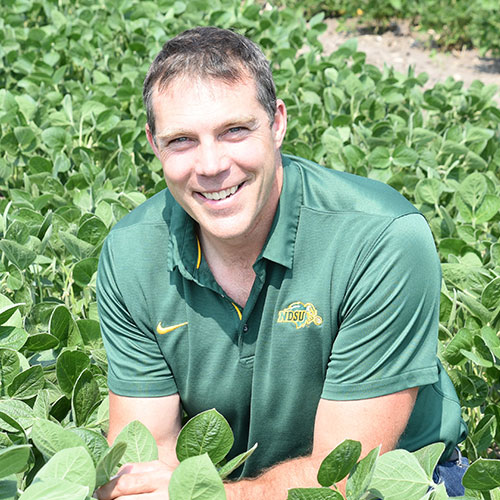
North Dakota State University
SCN is important because:
- SCN causes yield loss in North Dakota soybeans every year.
- SCN continues to spread in the state.
- Soybeans infected with SCN may not show above ground symptoms until they experience a 15-30% yield reduction.
- SCN also impacts dry edible beans.
- SCN distribution.
SCN Management Recommendations
There are multiple tactics for managing SCN:
- Early detection of SCN is very important for effective management.
- Soil sampling at the end of the season is the best way to detect SCN.
- The North Dakota Soybean Council supports an SCN sampling program that covers SCN laboratory fees for soil samples. Contact NDSU Extension for more information.
- Plant a resistant soybean variety if you have SCN.
- Crop rotation with non-host crops, such as corn, cereals, sunflowers, canola, flax, and others is very important for keeping egg levels low. Dry edible beans are hosts for SCN.
- In some cases, a seed treatment may be considered but is not a substitute for crop rotation and resistance.
- If you find SCN, even at a very low level, you need to manage it right away. SCN can explode in our soils and climate, keeping egg levels low is the most effective way to prevent yield loss.
SCN Sampling Program Results
The North Dakota Soybean Council provides financial support of the SCN sampling program that is operated by NDSU Extension. The program documents the spread of SCN.
North Dakota State University Experts




